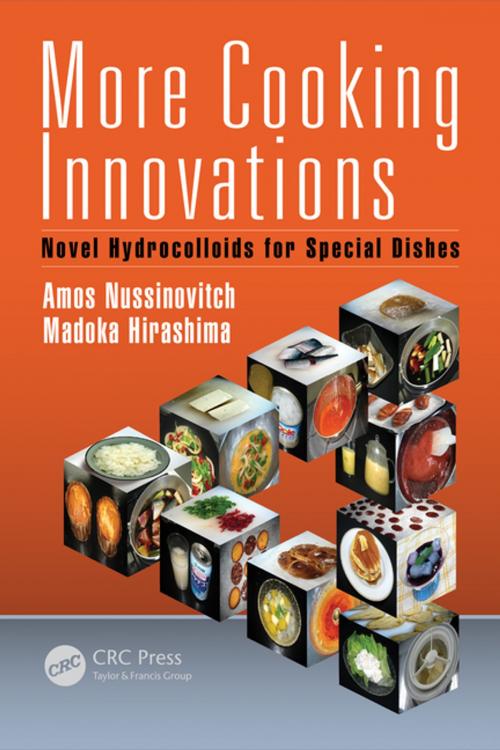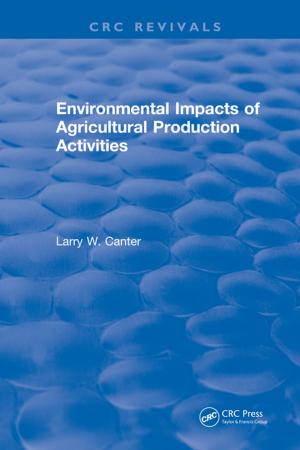More Cooking Innovations
Novel Hydrocolloids for Special Dishes
Nonfiction, Science & Nature, Technology, Food Industry & Science| Author: | Amos Nussinovitch, Madoka Hirashima | ISBN: | 9781351620635 |
| Publisher: | CRC Press | Publication: | September 3, 2018 |
| Imprint: | CRC Press | Language: | English |
| Author: | Amos Nussinovitch, Madoka Hirashima |
| ISBN: | 9781351620635 |
| Publisher: | CRC Press |
| Publication: | September 3, 2018 |
| Imprint: | CRC Press |
| Language: | English |
Hydrocolloids are among the most commonly used ingredients in the food industry. They function as thickeners, gelling agents, texturizers, stabilizers, and emulsifiers, and have applications in the areas of edible coatings and flavor release. This book More Cooking Innovations: Novel Hydrocolloids for Special Dishes completes the very demanding task begun with our previous book: "Cooking Innovations, Using Hydrocolloids for Thickening, Gelling and Emulsification" of covering all hydrocolloids that are or will be very useful and important in the kitchen.
Together, these books provide a complete picture of hydrocolloid use in foods, both in the kitchen and for food technologists and academics. The book includes several very important hydrocolloids, among them: chitin and chitosan, gum karaya, gum tragacanth, and milk proteins. Additional chapters comprise unique hydrocolloids which, in our opinion, will not only be used in future cooking (by both amateur cooks and professional chefs), but can pave the way to new and fascinating recipes and cooking techniques. The book also discusses novel hydrocolloids—the "where, why, and when" as well as future ideas for hydrocolloid processing and cooking. This book therefore describes more cooking innovations, and completes the list of hydrocolloids that are now, or will be used in kitchens and cooking for years to come.
Hydrocolloids are among the most commonly used ingredients in the food industry. They function as thickeners, gelling agents, texturizers, stabilizers, and emulsifiers, and have applications in the areas of edible coatings and flavor release. This book More Cooking Innovations: Novel Hydrocolloids for Special Dishes completes the very demanding task begun with our previous book: "Cooking Innovations, Using Hydrocolloids for Thickening, Gelling and Emulsification" of covering all hydrocolloids that are or will be very useful and important in the kitchen.
Together, these books provide a complete picture of hydrocolloid use in foods, both in the kitchen and for food technologists and academics. The book includes several very important hydrocolloids, among them: chitin and chitosan, gum karaya, gum tragacanth, and milk proteins. Additional chapters comprise unique hydrocolloids which, in our opinion, will not only be used in future cooking (by both amateur cooks and professional chefs), but can pave the way to new and fascinating recipes and cooking techniques. The book also discusses novel hydrocolloids—the "where, why, and when" as well as future ideas for hydrocolloid processing and cooking. This book therefore describes more cooking innovations, and completes the list of hydrocolloids that are now, or will be used in kitchens and cooking for years to come.















